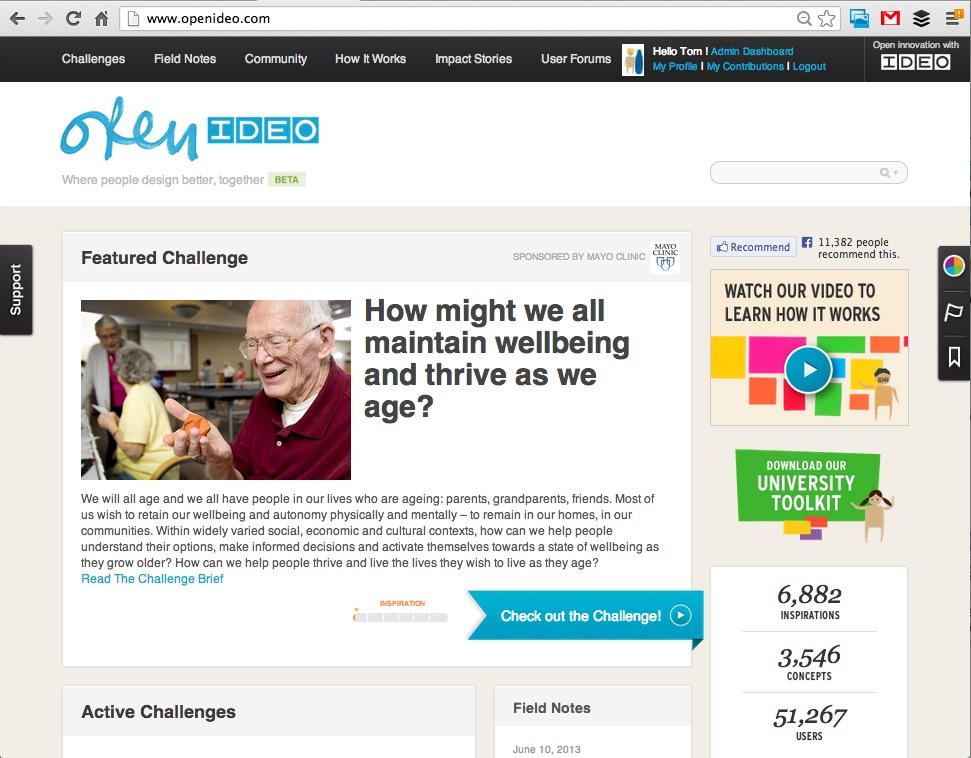As technology takes the friction out of inviting more and more people to help solve our challenges it's increasingly important we get the questions we ask right. At OpenIDEO we spend as much as 20 percent of our time on any given client project framing and refining the challenge, including thinking through what success might look like prior to getting started. In addition, we often run a 'pre-mortem' before we begin the challenge -- imagining we're at the end of the project and asking ourselves why it might have failed. In a roomful of optimists this is often the only way for everyone to feel comfortable exploring potential reasons for failure. I'm not convinced brainstorming unlocks groundbreaking ideas but I do think it can help explore potential solution types, enabling you to prototype a specific challenge question before you fully commit.
We recently went through this process when framing a new challenge on ageing with the Mayo Clinic. Ageing is a broad topic, potential challenges might include:
- What could increase average life expectancy beyond 67.2 years?
- How might we reverse the effects of Alzheimers?
- How might we make old people in North London happier?
- What would Twitter for old people be?
- How might we all maintain wellbeing and thrive as we age?
They're all important and the best solution to all of the challenges above might be 'a care and support service in the community', but it's unlikely. Instead, the different questions and their framing would probably lead to wildly different types of solution. The wording and tone of the question matters -- if you ask the wrong question you'll get the wrong solution, but so many of us spend a tiny fraction of our time framing the questions we're asking and even less time re-evaluating them over time.
In addition to unlocking the right solutions, the question needs to be perceived to be important to potential solvers. We try to make OpenIDEO challenges more engaging by humanising them -- hopefully increasing any potential collaborators' empathy with the topic. After all, human stories and challenges are like SEO for our minds -- we recollect them more clearly and care about them more deeply versus other types of problems.
Once you dive into problem-solving, remember that the challenge itself is dynamic, it is reshaped by the initial solutions you explore and the changing context, therefore budget time to reappraise it regularly.
Finally, project 'post-mortems' can help your organisation learn, not to ascertain if the outcome was a success or failure and to attribute blame but instead to ask how you could have framed a better challenge at the beginning. Only then can we develop our ability to ask the right question.
Which of the five possible challenges above do you think we went with given that OpenIDEO is a global community, capable of designing products and services rather than solving complex scientific challenges? You guessed it, we opted for "How might we all maintain wellbeing and thrive as we age?" You can see the challenge and participate here.
Tip1 : Invest in framing your challenge and communicating it clearly, make it human, define success and think through what would not be in scope carefully. Reappraise the challenge regularly.
The Mayo OpenIDEO Challenge:
